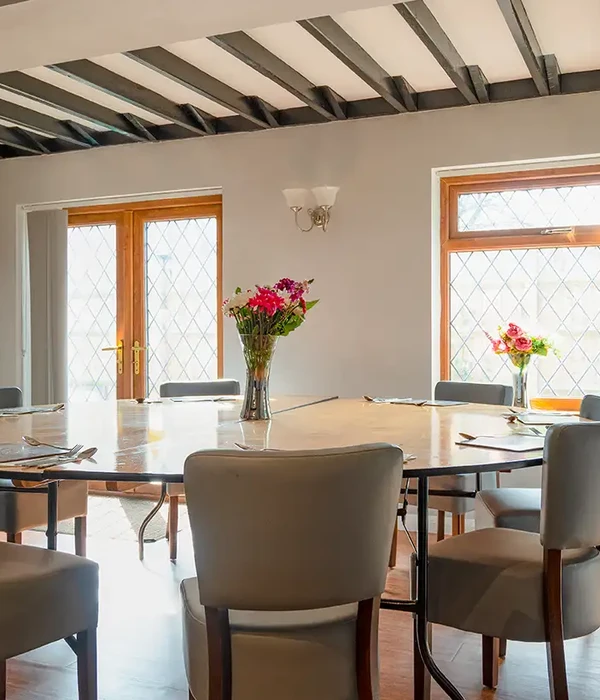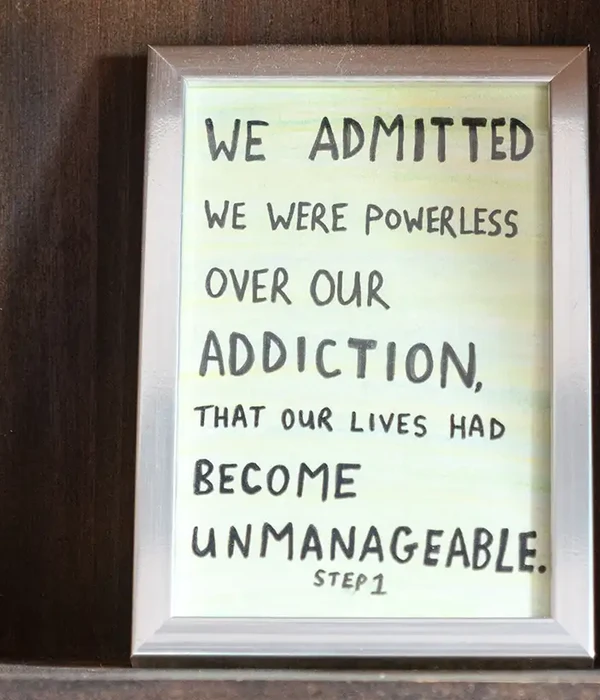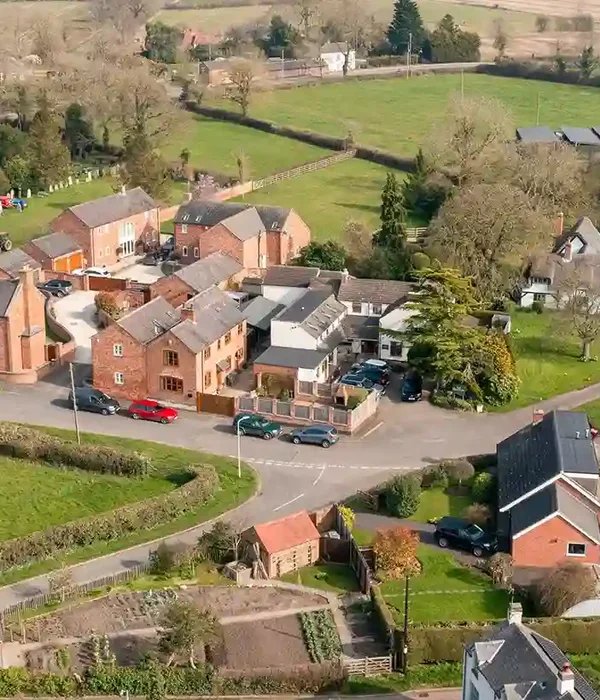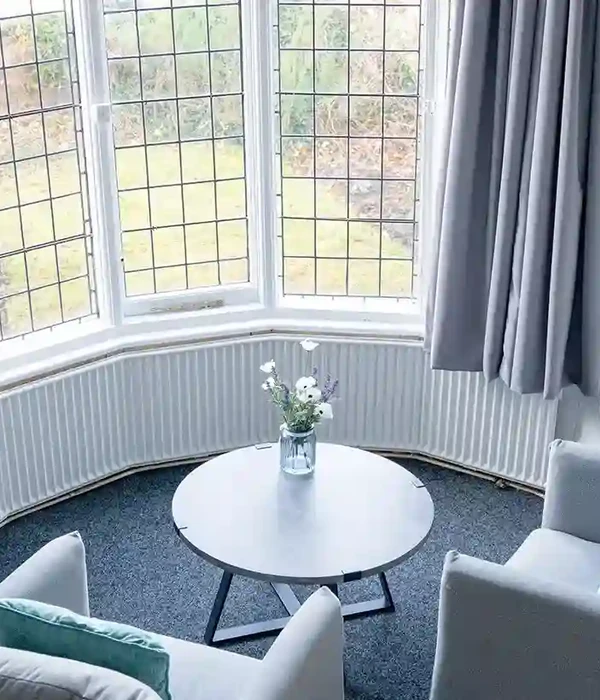Crack Cocaine Addiction Treatment
Crack cocaine addiction can feel overwhelming, but treatment offers a clear and structured way forward. The most effective approach combines safe detox, tailored therapies, and ongoing support that helps you rebuild life without relying on crack. With the right guidance, it becomes possible to break free from the cycle of cravings and withdrawal.
At Steps Together, we provide compassionate care that focuses on every stage of recovery. From medical detox to structured addiction recovery programmes, we work closely with you to create a pathway that fits your needs. Whether through inpatient crack cocaine rehab or access to private rehab clinics, our aim is to give you the tools and support that make lasting change achievable.
Recovery is not just about stopping crack use, but about regaining stability, confidence, and purpose. With access to addiction support services, therapy, and community-based help, you are never expected to face this challenge alone. We walk with you at every step, helping you move from crisis towards healing and long-term recovery.

Take the First Step Towards Healing
We know that reaching out for help can feel overwhelming, but taking that first step is the most important part of recovery. Our friendly admissions team is here to listen, guide, and support you with compassion from the very beginning.

Understanding Crack Cocaine Addiction
Crack cocaine addiction develops quickly due to the drug’s intense and short-lived effects. It changes the way the brain responds to pleasure and reward, creating a strong cycle of craving, use, and withdrawal that can affect both physical health and daily life.
What Is Crack Cocaine Addiction?
Crack cocaine is a form of cocaine that is usually smoked, producing a rapid and powerful high. Because the effects come on so quickly and fade just as fast, people often feel compelled to use it repeatedly in short periods. This pattern can make dependence develop faster than with many other substances.
Addiction occurs when the brain adapts to the drug’s influence on dopamine, the chemical linked to reward and motivation. Over time, natural sources of pleasure lose their impact, leaving individuals reliant on crack to feel any sense of relief or satisfaction.
This dependence is not only psychological but also physical. Regular use can lead to tolerance, meaning larger amounts are needed to achieve the same effect. When the drug is absent, withdrawal symptoms such as fatigue, anxiety, and low mood often appear, reinforcing the cycle of use.


Signs and Symptoms of Addiction
Recognising the signs of crack cocaine addiction can help identify when support is needed. Common indicators include strong cravings, neglect of responsibilities, and continued use despite negative consequences. These behaviours often disrupt relationships, work, and financial stability.
Physical and mental symptoms may also emerge. Individuals might experience rapid weight loss, sleep problems, mood swings, paranoia, or even hallucinations. These issues can worsen with prolonged use, making everyday functioning increasingly difficult.
Withdrawal symptoms are another key marker. Irritability, depression, and intense fatigue often appear when use is reduced or stopped. Such symptoms can make quitting without professional help especially challenging, highlighting the seriousness of the condition.
Effective Treatment Pathways for Crack Cocaine
We approach crack cocaine treatment as a structured journey that addresses both the physical and psychological challenges of addiction. Each stage builds on the last, ensuring safety during withdrawal, structured therapy in controlled settings, flexible outpatient care, and long-term support to reduce relapse risk.
Detox Process and Medical Support
Detox is the first stage in recovery, focusing on clearing the body of crack cocaine while managing withdrawal symptoms safely. Because withdrawal can bring intense cravings, anxiety, and depression, we provide medical supervision throughout this process. This ensures that individuals remain safe and supported during what can be a highly uncomfortable stage.
We tailor detox to each person’s health needs, with monitoring available around the clock. Medical teams may use supportive medication to ease symptoms, though no specific drug currently exists to treat crack dependence directly. Emotional support is also key, helping individuals cope with the psychological strain of early abstinence.
At Steps Together, detox is not treated as a stand-alone solution. Instead, it prepares individuals for the next stage of structured treatment, giving them a stable foundation to build on.
Outpatient Treatment Programmes
Outpatient treatment offers flexibility for individuals who cannot commit to a residential stay due to work, family, or other responsibilities. These programmes provide structured therapy sessions while allowing clients to continue with their daily lives.
Our outpatient services cover a range of intensities, from partial hospitalisation to less frequent therapy sessions. Treatment often includes individual counselling, group therapy, and relapse prevention planning. This flexible model allows us to adapt care to each person’s needs and level of dependence.
For those who require detox but cannot enter a residential setting, we also provide outpatient detox services. These are medically supervised and designed to ensure safety while clients remain at home. This option works best for people with stable support networks and lower-risk withdrawal needs.
Relapse Prevention Programmes
Relapse prevention is an essential element of long-term recovery. We focus on equipping individuals with the skills to recognise triggers, manage cravings, and respond to high-risk situations without returning to drug use.
Our programmes often use cognitive behavioural techniques to help clients reframe thought patterns and develop healthier coping strategies. We also encourage participation in peer support groups, which provide accountability and shared experience.
Relapse prevention is not a one-time intervention but an ongoing process. By combining therapy, practical planning, and continued support, we help clients build resilience and reduce the likelihood of returning to crack cocaine use.
Residential Treatment Programmes
Residential rehabilitation provides a structured environment where individuals can focus entirely on recovery without outside distractions. This setting is particularly valuable for those with severe addiction or those who have relapsed after previous attempts at outpatient care.
Within our residential programmes, clients follow a daily schedule of evidence-based therapies such as cognitive behavioural therapy, group sessions, and one-to-one counselling. These interventions help people understand the triggers behind their drug use and develop healthier coping strategies.
The residential setting also offers peer support, which plays a vital role in building motivation and accountability. Living alongside others on a similar journey creates a strong sense of community, which often proves essential in sustaining progress.
Comprehensive Aftercare Support
Recovery does not end when structured treatment finishes. Ongoing support is critical to maintaining progress and preventing relapse. Our aftercare services provide consistent guidance through therapy sessions, support groups, and regular check-ins with trained professionals.
We encourage clients to remain connected to aftercare for at least six months, as research shows longer engagement improves long-term outcomes. Support may include one-to-one counselling, group meetings, or family therapy, depending on individual needs.
This ongoing connection helps clients manage the challenges of returning to everyday life. By providing a safety net of professional and peer support, aftercare helps people sustain the progress they achieved during treatment.
Other Substances our Alcohol and Drug Addiction Treatment Centres Treat
We provide focused treatments that address both the physical and emotional aspects of recovery. Our services combine structured therapies with supportive environments to help individuals build practical coping skills and strengthen personal resilience.

Navigating Your Treatment Journey
We guide each person through a clear admissions pathway and provide care in settings that meet strict regulatory standards. From first contact to ongoing support, the focus stays on safety, transparency, and clinically proven treatment.
Admissions Process Explained
When someone reaches out for help, we begin with a confidential assessment. This initial step allows us to understand their medical history, substance use, and personal circumstances. By gathering this information, we can recommend the most appropriate level of care.
The admissions process often includes a pre-admission health screening. This ensures that any underlying conditions are identified early and that treatment can be tailored safely. For many, the journey starts with a medically supervised detox, where withdrawal is managed under clinical supervision to reduce risks and discomfort.
Once detox is complete, the focus shifts to structured therapies and ongoing support. We explain every stage clearly so there are no surprises. Our aim is to make this transition into treatment as straightforward as possible, while ensuring that each individual feels informed and supported.


Why Choose a CQC-Registered Clinic
Selecting a clinic regulated by the Care Quality Commission (CQC) means choosing a service that meets national standards of safety and quality. CQC registration confirms that the clinic is regularly inspected and held accountable for the care it provides.
This oversight covers staffing, facilities, and treatment practices. It reassures families and patients that the environment is safe, professional, and committed to continuous improvement. We believe this level of regulation is vital for building trust and ensuring consistent outcomes.
By choosing a CQC-registered clinic, individuals receive treatment in a setting where standards are not optional but required. This gives confidence that the care offered is both ethical and effective, supporting recovery in the most secure way possible.
Your Next Steps with Steps Together
We provide clear pathways into treatment that focus on safety, structure, and long-term support. From the first conversation to ongoing aftercare, our approach is designed to give people the tools they need to move forward with confidence.
Our admissions team is often the first point of contact for anyone considering treatment with us. We know this can feel like a daunting step, so we make the process as straightforward and supportive as possible.
When you reach out, we take time to understand your personal circumstances, history of use, and any immediate concerns. This helps us recommend treatment options that are both realistic and effective.
We also provide guidance on practical matters such as costs, availability, and the length of programmes. By addressing these details early, we reduce uncertainty and help you make informed decisions.
Every call is handled with discretion and respect. We want you to feel comfortable discussing sensitive information, knowing that our priority is to support your recovery from the very beginning.
We offer both residential rehab and outpatient programmes to suit different needs. Residential treatment is often best for those who need a structured environment away from daily triggers. It provides 24-hour care, therapeutic sessions, and a safe space to focus solely on recovery.
For those who cannot step away from work, family, or other commitments, outpatient care offers flexibility. These programmes vary in intensity and can include multiple sessions each week, allowing you to balance treatment with daily responsibilities.
Both approaches use evidence-based therapies such as cognitive behavioural therapy and group support. Our team works with you to decide which setting offers the best chance of progress.
By tailoring treatment to your circumstances, we ensure you receive the right level of care at the right time.
Recovery does not end when a programme is complete. We place strong emphasis on aftercare to help you maintain progress and reduce the risk of relapse.
Our aftercare plans may include regular therapy sessions, peer support meetings, and check-ins with our team. These services give you continued guidance as you adjust to life outside structured treatment.
We also encourage building healthy routines and support networks. This can involve connecting with community resources, developing coping strategies, and setting achievable personal goals.
By staying engaged with aftercare, you strengthen the foundations built during treatment and improve your ability to manage challenges in the long term.
Additional Considerations in Recovery
Successful treatment for crack cocaine addiction often requires more than detox and therapy. Addressing co-existing conditions, mental health, treatment settings, and financial planning can make a significant difference in long-term recovery.
Dual Diagnosis Care
Many people living with crack cocaine addiction also experience conditions such as depression, anxiety, or bipolar disorder. Treating both issues together is essential, as untreated mental illness can undermine progress in addiction recovery.
At Steps Together, dual diagnosis treatment focuses on coordinated care. This means addiction specialists and mental health professionals work side by side. By aligning treatment goals, we reduce the risk of relapse and improve stability.
Inpatient rehab often provides the most structured environment for dual diagnosis care. With medical supervision and daily therapeutic input, individuals receive consistent support that addresses both substance use and mental health needs.
NHS Versus Private Rehab
In the UK, treatment may be accessed through the NHS or private providers. NHS services are free at the point of use but often involve long waiting times and limited availability of inpatient rehab. Outpatient support is more common, which may not be sufficient for severe cases.
Private rehab offers faster admission and more intensive programmes. Residential treatment provides round-the-clock care, structured therapy schedules, and tailored plans. This level of support can be particularly valuable for those with complex needs or repeated relapses.
Choosing between NHS and private care often comes down to urgency, severity, and the level of personalisation required. Both pathways can be effective, but the speed and intensity of private rehab make it a strong option for many families.
Mental Health Support
Mental health treatment plays a central role in sustaining recovery. Crack cocaine use can intensify symptoms of anxiety, depression, and paranoia, which may persist after detox. Without ongoing support, these symptoms can trigger relapse.
We encourage access to regular counselling, whether through one-to-one therapy or group sessions. Cognitive behavioural therapy (CBT) remains one of the most effective approaches, helping individuals manage negative thought patterns and reduce cravings.
Peer support also matters. Sharing experiences with others who understand the challenges of addiction can reduce feelings of isolation. Combined with professional guidance, this creates a balanced support network that strengthens recovery.
Costs and Funding Options
The cost of private rehab varies depending on location, length of stay, and the level of care. Residential programmes are more expensive than outpatient services, but they also provide greater structure and medical oversight.
Funding options include self-payment, private health insurance, or in some cases, employer support. Some clinics also offer payment plans to spread the cost. For those unable to afford private care, NHS services remain a vital pathway, despite longer waits.
We recommend carefully weighing affordability against the benefits of immediate and intensive treatment. Investing in the right level of care can reduce the risk of relapse and provide a stronger foundation for long-term recovery.

Ready to Begin Your Recovery Journey?
Taking the first step towards recovery can feel daunting, but you don’t have to face it alone. We provide a safe and structured environment where you can focus fully on healing and rebuilding your life.
Our addiction recovery programme is designed to support your physical, emotional, and mental wellbeing. From the earliest stages of detox through to tailored therapies and ongoing aftercare, we ensure you have the right tools at every step.
At Steps Together, we believe recovery is about more than stopping use—it’s about creating a healthier, more stable future. With compassionate guidance and proven approaches, we walk alongside you as you regain control and rediscover confidence.
If you’re ready to begin, we’re here to help you take that first step. Reach out today and let us guide you towards lasting recovery in a safe and supportive way.
Frequently Asked Questions About Crack Cocaine Rehab
We often hear the same concerns from individuals and families when they begin exploring treatment. These questions usually focus on recognising the need for help, understanding the options available, and knowing what to expect both during and after rehab.
How do I know if I or a loved one needs treatment for crack cocaine addiction?
If crack cocaine use is causing harm to health, work, relationships, or finances, it is a strong sign that treatment is needed. Common indicators include intense cravings, neglecting responsibilities, or using despite serious consequences.
We also see many families notice changes in behaviour, such as secrecy, mood swings, or aggression. When use becomes difficult to control without support, professional treatment is the safest step forward.
How long does treatment usually take?
Treatment duration depends on the severity of addiction and the type of programme chosen. Inpatient rehab typically lasts between 28 days and 12 weeks, giving enough time for detox, therapy, and relapse prevention planning.
Outpatient treatment may run for several months, with weekly or bi-weekly sessions. We recommend longer stays for those with a long history of use, as extended support allows for stronger recovery foundations.
What happens after rehab — is aftercare included?
Aftercare is a key part of successful recovery. Most private rehab centres, including ours, provide structured aftercare such as ongoing therapy, relapse prevention workshops, and access to support groups.
This continued guidance helps people adjust back into daily life while staying accountable. Without aftercare, the risk of relapse is higher, so we always encourage long-term follow-up support once formal treatment ends.
Are any treatments covered by the NHS?
Yes, the NHS does provide addiction treatment, but it is usually delivered through outpatient services. These may include counselling, community recovery groups, and referrals to local drug and alcohol teams.
However, NHS-funded inpatient rehab is limited and often requires long waiting lists. For those needing immediate and intensive support, private rehab remains the most accessible option, while NHS care works well for less severe cases.
What treatment options are available in the UK?
In the UK, treatment is available through both private rehab centres and NHS services. Private programmes often provide inpatient residential care, offering structured daily therapy, medical drug detox , and holistic support .
NHS treatment is usually delivered through outpatient services, such as counselling, community groups, and limited detox support. Both options have benefits, but inpatient rehab offers the most intensive and immediate care for those with severe dependency.
Is detox from crack cocaine dangerous?
Crack cocaine detox does not usually cause life-threatening physical withdrawal, but it can involve severe psychological symptoms. Many people experience intense cravings, anxiety, depression, and sleep disruption.
Attempting detox alone can increase the risk of relapse and harm. With professional medical supervision, we can manage symptoms safely, provide emotional support, and reduce risks linked to sudden withdrawal.
How much does private rehab cost in the UK?
The cost of private rehab in the UK varies depending on the length of stay, location, and facilities. On average, inpatient programmes range from around £4,000 to £12,000 for a 28-day stay.
Longer programmes can cost more, but they also provide extended therapy and recovery support. We always recommend asking for a clear breakdown of fees before committing, so you know exactly what is included.





